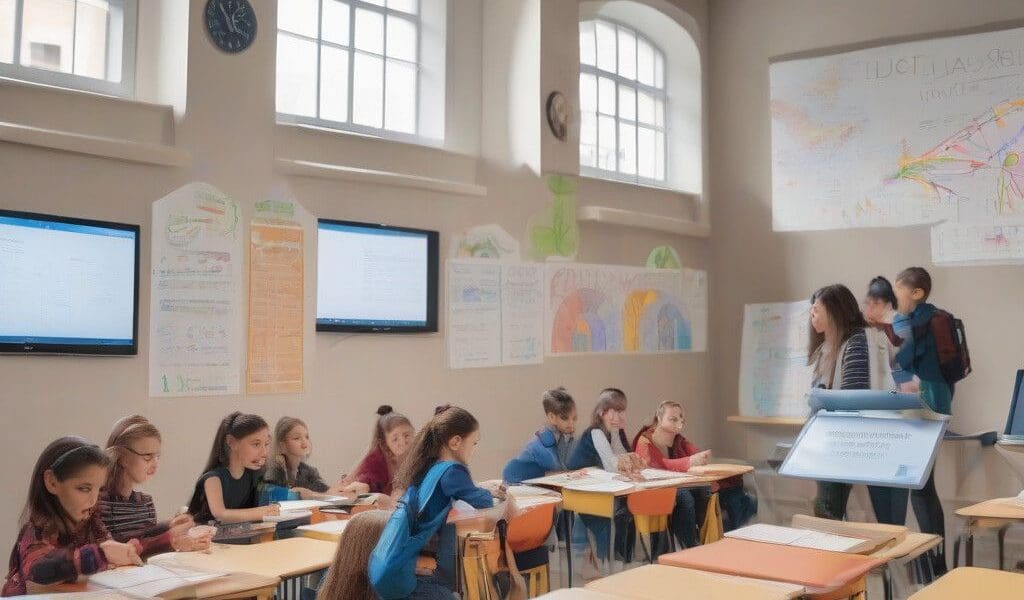Italy Targets Digital Divide with AI-Assisted Learning
Italy is taking significant steps to combat its digital skills gap through the implementation of AI-assisted learning tools. This initiative, introduced by Prime Minister Giorgia Meloni’s government, aims to transform educational experiences for students and teachers alike in a bid to foster a more digitally adept society.
The project is currently being tested in 15 classrooms spread across four regions, with a focus on adapting educational methodologies to better serve individual learning needs. The integration of AI technology allows for tailored educational experiences, moving away from a one-size-fits-all approach that has dominated traditional teaching methods.
Education Minister Giuseppe Valditara has been vocal about the necessity of this initiative, highlighting the pressing need for digital advancements as foundational for future generations. Italy has historically ranked low among European Union countries in essential digital competencies. According to recent statistics, over 50% of the Italian population lacks basic digital skills, highlighting a critical need for intervention.
As part of the strategy, the government has also enforced a ban on mobile phones within school premises. This decision aims to mitigate distractions that can hinder the learning process, enabling students to focus more effectively on their educational activities. With the combined efforts of AI technology and a more controlled classroom environment, officials are optimistic that these measures will lead to noticeable improvements in digital literacy among students.
The trial is set to run throughout the academic year, during which its impact will be closely monitored. Key performance indicators will likely include students’ engagement levels, overall academic performance, and the inclusivity of the learning environment. The goal is to gain insights that could support a wider rollout of AI tools across Italy’s education system, possibly revolutionizing how students learn in the digital age.
Moreover, this initiative aligns with broader trends in education where technology plays a crucial role in facilitating enhanced learning experiences. Countries worldwide are increasingly recognizing the importance of digital skills as essential for navigating the complexities of modern life and work. For example, nations like Estonia have pioneered digital literacy programs that have effectively bridged their digital divide, serving as potential models for Italy.
Italy’s approach also reflects a growing acknowledgment that advancements in technology must be complemented by skill development. The government’s proactive stance illustrates a commitment to addressing the digital divide, ensuring that future generations are not only consumers of technology but also skilled creators and critical thinkers equipped to thrive in a competitive global landscape.
In conclusion, Italy’s trial of AI-assisted learning tools is a promising development in the ongoing effort to elevate digital skills among its youth. This initiative not only aims to prepare students for a technology-driven future but also presents a model for other nations grappling with similar challenges. As this pilot program progresses, the insights gained could inform education strategies and policies, ultimately paving the way for a more digitally competent society.








